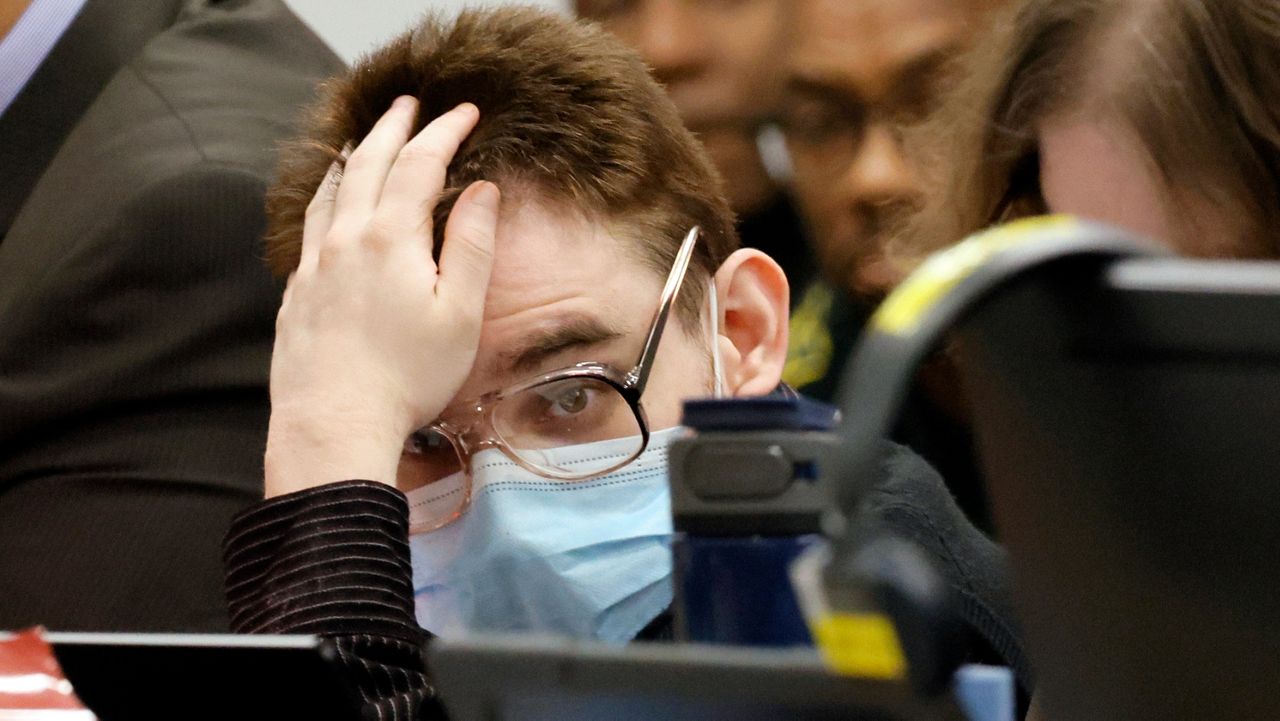FORT LAUDERDALE, Fla. — Florida school shooter Nikolas Cruz walked casually into a sandwich shop minutes after he murdered 14 students and three staff members at Parkland’s Marjory Stoneman Douglas High School four years ago, showing no signs of stress or nervousness, video played at his penalty trial Thursday showed.
What You Need To Know
- After the shooting at Marjory Stoneman Douglas High, Nikolas Cruz showed no signs of stress, video indicates
- By coincidence, Cruz unsuccessfully sought a ride from the brother of a girl he seriously wounded
- Testimony at the penalty phase of his trial Thursday focused on Cruz's attempted escape
- The jury must decide whether he should be sentenced to death or life without parole.
- Cruz pleaded guilty to 17 counts of first-degree murder in October
Cruz then walked to a nearby McDonald’s, where, by coincidence, he unsuccessfully sought a ride from the brother of a girl he had seriously wounded. The boy did not not know who Cruz was.
Thursday’s abbreviated court session focused on Cruz’s attempted escape after the Feb. 14, 2018, shooting and his arrest, about an hour after he fled the campus. The mostly low-key testimony and evidence stood in contrast with the previous three emotional days, which covered the seven minutes Cruz stalked a three-story classroom building firing his AR-15 semi-automatic rifle into crowded classrooms and hallways.
After the shooting, Cruz fled the building, dressed in a burgundy shirt from the Stoneman Douglas Junior Reserve Officer Training Corps — he had been a member when he attended the school — and a New York City Police Department cap.
The former Stoneman Douglas student blended in with students who were evacuating campus and went to a nearby Walmart, where security video shows that 25 minutes after he stopped shooting he turned into the Subway sandwich shop inside the entrance.
Store manager Carlos Rugeles testified that Cruz ordered a cherry and blue raspberry Icee. The video shows that when Cruz got his drink and change, he tossed the coins into the tip jar, stuck a straw into the lid and walked out.
Eight minutes later, Cruz entered a nearby McDonald’s, still drinking his Icee, store video shows. He climbed into a booth with then-Stoneman Douglas freshman John Wilford, who did not know him.
Wilford testified that he didn’t know exactly what had happened at the school, but after evacuating he had been trying to call his older sister Maddy — he didn’t know she had been seriously wounded by this stranger. When he couldn’t reach her, he called his mom, who said she would pick him up.
He then tried to make small talk with Cruz.
“I told him, ‘This is so chaotic, it’s crazy with all these helicopters and squad cars. What do you think this could be?’” Wilford recalled. “He didn’t say much. He had his head down.”
A minute later, Wilford went to meet his mother in the parking lot. Cruz followed and asked for a ride, but Wilford said no.
“He was pretty insistent on it. I wasn’t really thinking much of it. I just wanted to get home and my sister wasn’t answering her phone,” Wilford said.
Cruz walked away. He was arrested about a half-hour later by Michael Leonard, an officer with the neighboring Coconut Creek Police Department. Leonard testified he was driving through neighborhoods looking for anyone matching the shooter’s description.
The officer was 3 miles (5 kilometers) from the school and about to drive back toward it when he spotted Cruz walking on a residential street. He said he stopped and Cruz looked at him. He pulled his gun and ordered Cruz to the ground. Cruz complied.
A search found $350 in Cruz’s pocket.
Cruz, 23, pleaded guilty in October to 17 counts of first-degree murder. The jury must only decide whether he should be sentenced to death or life without parole for the nation’s deadliest mass shooting to go before a jury.
Nine other gunmen who killed at least 17 people died during or immediately after their shootings, either by suicide or police gunfire. The suspect in the 2019 slaying of 23 people at a Walmart in El Paso, Texas, is awaiting trial.
When jurors eventually get the case, probably in October or November, they will vote 17 times, once for each of the victims, on whether to recommend capital punishment.
For each death sentence, the jury must be unanimous or the sentence for that victim is life. The jurors are told that to vote for death, the prosecution’s aggravating circumstances for that victim must, in their judgment, “outweigh” the defense’s mitigators. A juror can also vote for life out of mercy for Cruz. During jury selection, the panelists said under oath that they are capable of voting for either sentence.



